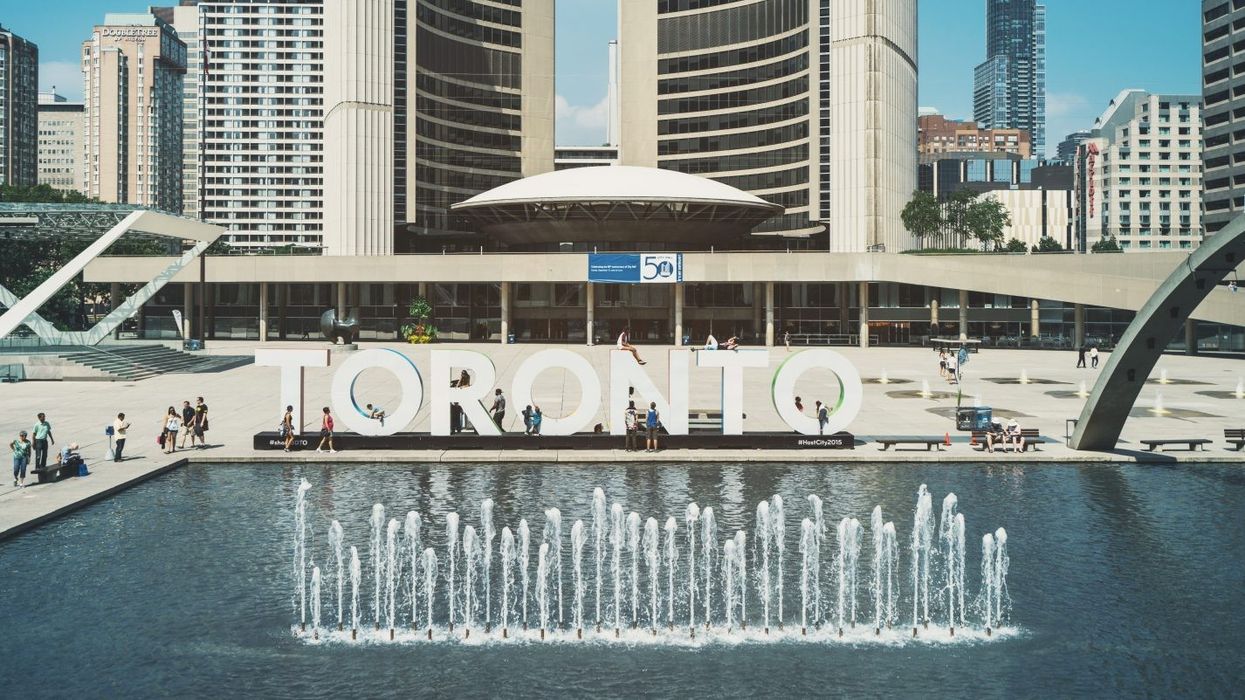By the time John Tory’s mayoral term ends in 2022, Toronto will have endured 12 straight years of austerity. That’s almost half a generation of being told we’re poor. No wonder it’s starting to show.
But the truth tells us otherwise; Toronto is the only Canadian city to make the list of the 15 richest metropolises on the planet. According to South African market research firm, New World Wealth, we’re number 13. The total amount of private wealth in Toronto sits at $944 billion (USD). But you’d never know it. Our schools are falling apart. Transit is 30 years behind where it should be. The homeless have been abandoned and social housing is a mess.
READ: Best And Worst Cities For Property Taxes In Canada
The only thing we have to boast about is that Toronto’s property taxes are the lowest in the GTA.
For many, including the mayor and his political allies, that’s enough, thank you very much. After all, once the snow is ploughed, the potholes filled and the garbage collected, what remains to be done? A lot it seems. The problem with all that wealth is that it’s concentrated into fewer and fewer hands. And for the most part, they pay far less in taxes than ever before.
As the rest of know only too well, wages for the middle and working class have been stagnant for the last 30 years. StatsCan tells us that to be in the top one percent in Toronto, you need an annual salary of $301,884. On the other hand, the average wage in the city is $58,576.
Notice a difference?
READ: GTA Cities With The Highest And Lowest Property Taxes
The figures are skewed by the fact that anyone who owns their home in the city, regardless of income, is rich in assets if not cash. Little wonder, then, that so many people, especially young people, are leaving the city in their search for affordable housing. This does not bode well for the future of Toronto, where public services, including transit, are already stretched to the limit.
Clearly, Toronto (and its masters at Queen’s Park) needs to relearn the importance of investing. Instead, we remain myopically focused on keeping real estate taxes low. Though polls have shown that Torontonians are willing to pay more, that’s not something local politicians are willing to risk. This reveals them every bit as cowardly, backward and self-interested as critics argue, but such are the politicians we elect.
Worse still, aside from user fees and the odd (rarely applied) tax, Toronto, and all Canadian cities, has no serious revenue sources other than property tax. The last mayor to grapple with the issue was David Miller, who introduced a $60 vehicle registration fee and a land transfer tax. When Rob Ford replaced Miller in 2000, his first act was to kill the former. He didn’t touch the latter, however, and indeed, without it the city would be in dire financial straights. Now that the housing market is cooling off, the city is finding it harder than ever to balance its books.
READ: Without A Clear Leader, What Does The Future Hold For Toronto?
The clear conclusion is that Toronto needs access to other tax sources. In the US and Europe, many cities take a share of income tax. Some have a sales tax. It’s hard to imagine either the federal or provincial governments changing the rules to allow a municipal income tax or, god forbid, sharing their income tax with cities.
On the other hand, in recent years there has been growing talk of a civic sales tax. The provinces have resisted the idea. In British Columbia, where Vancouver’s asked for a 0.5 per cent sales tax to expand its transit system, the city was rejected first by then-premier Christy Clark and then by residents in a referendum.
But as a study released in January by the Canadian Centre for Policy Alternatives pointed out, a 2 per cent sales tax would raise $1 billion annually in Toronto. The same tax applied throughout the GTHA would yield $2.5 billion. And let’s not forget, city administrations from Mississauga to Brampton have made no secret of their support for a municipal sale tax, something the Toronto brain trust has not had the courage to do.
READ: The Big Threat To Toronto And John Tory Now Comes From The Province And Doug Ford
In a city with a budget of just over $11 billion, that increase could make a positive difference. Imagine how that sort of money could help Toronto bring the TTC into the 21st century, revitalize Toronto Community Housing and maintain our schools. Politicians from Ontario Premier Doug Ford to John Tory and his budget chief Gary Crawford would have us believe we can have it all and not pay for it. This is one of the convenient untruths we hear from them all the time. Many voters even pretend it’s true. If only.





















